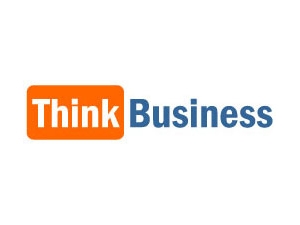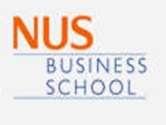
Psy to pi: Leadership Korean-style
By NUS Business SchoolDr Chang-Gyu Hwang has a passion for technology - its power to change lives and deliver solutions to our biggest challenges.
As the former Chief Technology Officer of Samsung Electronics, he was the driving force behind the firm's transformation from a bulk component manufacturer in the 1980s, to a global powerhouse and pioneer in the field of semiconductors, flash memory and other high-performance technologies.
Now the South Korean government's top technology strategist, he is regarded as a leading industry visionary. But in a recent lecture at the National University of Singapore Business School he was stumped by a question asked by one student: "Have you ever met Psy?"
While it is fair to surmise that Hwang's YouTube video performances will never surpass the one billion views notched up by the bespectacled K-Pop star, his accomplishments have touched the lives of every electronic product user on the planet. And, as that technology spreads, Hwang's impact will (almost) certainly outlive that of Gangnam Style.
Driving force
Hwang started his working life as an engineer, completing a BSc and MSc in Electrical Engineering and subsequently a PhD at the University of Massachusetts. His career at Samsung saw him lead the phenomenal growth of the firm's semiconductor division – a force he says drove the growth of the entire smartphone industry.
In his current roles as Chief Technology Officer and Head of the Office of the Strategic R&D Planning of the South Korean Ministry of Knowledge Economy, his job is to maintain and strengthen the country's competitive edge in the global economy through innovation and technology.
Now he says the world is on the verge of a new technological revolution – a mobile, human-centred future he has labelled Smartopia.
A passionate advocate of this vision, he says Smartopia will see technology used to serve humanity with applications across a broad spectrum from smart medicine to eco-friendly solutions to energy challenges.
In his talk at NUS, Hwang discussed the role of leadership in bringing Smartopia into reality, and presented three key aspects of leadership he says are needed to fulfill his vision.
First, leading innovation. Many people talk about leading a culture of innovation but it can be difficult to establish in practice. Hwang recommends that a leader should observe the world, particularly beyond their own area of expertise, looking for new and different perspectives and encourage experimentation to establish the most viable solutions. This also means developing a certain tolerance toward failures, viewing them as a valuable learning tool rather than simply a negative. This approach, Hwang says, was critical in Samsung's development of flash technology that is now embedded in most of our mobile devices.
Secondly, Hwang says, apply concepts from Confucian leadership. He sees big potential in combining principles of East-Asian Confucianism with Western business practices for developing an approach to leadership that is applicable well beyond Asia. Evidence of this thinking can be seen in the Smartopia concept, where technology is viewed through the prism of serving the people for a smarter, sustainable, healthier world.
One aspect of Confucian leadership is leading, not just for your own interests, but also for that of your employees, customers and society more broadly. Hwang's vision of the future is that technology benefits everyone, not just the interests of the companies developing and selling it. South Korea's corporate culture, integrates Western business standards while maintaining distinctive Confucian values to produce one of the world's most dynamic economies. Great examples of this combination are the country's powerful business conglomerates or chaebols, such as Samsung and Hyundai. While these vast conglomerates adhere to Western capitalist practices, they still integrate the social hierarchical setting and loyalties, as outlined in Confucianism.
And thirdly, master leadership transitions. Career progression, Hwang says, demands that a leader accept greater responsibilities and demonstrate stronger people leadership capabilities, which for most leaders involves a transition of leadership style. Reflecting on his own career path, Hwang has identified four stages of leadership: the I-type, T-type, π (pi)-type and S-type, each of which corresponds to a particular phase in his career.
I-type
Hwang started as a research associate at Stanford University and an engineer at Intel, accumulating a wealth of knowledge about the semiconductor industry. This experience gave him the technical expertise that enabled him to fulfill his vision for the future of memory technology. As a specialist, he earned tremendous respect from his R&D team as he led Samsung's technology revolution in the 1990s.
This is the I-type leader a stage of technical expertise and the first phase of most leaders' careers. Demonstrating their technical expertise gets leaders noticed and promoted but then the demands on them change.
T-type
In 2008, Hwang's promotion to CEO and CTO at Samsung Electronics significantly broadened his responsibilities, taking charge of other business lines besides semiconductors. One of the main challenges was to discover and manage the dynamic interactions among the business units and co-ordinate the strategic decisions for the company.
This position extended the I-type to the T-type of leadership, implying a growth from the root to branch out and expand in multiple dimensions. It is a challenge most leaders face when they go from leading their division to leading areas of the business in which they have limited technical expertise, calling upon their ability to lead others to collaborate and solve problems.
π-type
Now Hwang's current title as the CTO of the South Korean government is a test of what he calls "creativity leadership" - the π-type. In a new job that requires a great deal of strategic thinking and inspiring others, Hwang believes that this is his current stage of leadership – one he is still mastering.
His role requires him to engage with all levels of the economy and build collaboration not just within one organisation, but across South Korea as well as between South Korea and the world.
S-type
Finally Hwang has envisioned the next stage of leadership that he now aspires to: an integral form of leadership that emerges from the understanding of science technology, liberal arts and arts, one he calls the S-type.
This leadership form would highlight and foster adaptability. Humans have a great strength in being able to adapt to challenges and change and the S-type leader will be required for organisations and countries to meet the challenges ahead.
In summary Hwang's examples illustrate how leadership plays a central role in driving innovation and entrepreneurship at an individual, organisation and country level. His lecture emphasised the need for developing the right leadership capabilities in an organisation, be it a multi-national company or government.
The three concepts discussed in his talk: leading innovation, applying concepts from Confucian leadership and mastering the transitions of leadership provide food for thought on the development of contemporary leadership approaches in Asia.
This article was first published on NUS Business School's Think Business portal (thinkbusiness.nus.edu).
Author: Darren Hanson
READ MORE FROM NUS:
Source: https://thinkbusiness.nus.edu/articles/item/112-psy-to-%CF%80-leadership-korean-style

























 Advertise
Advertise






